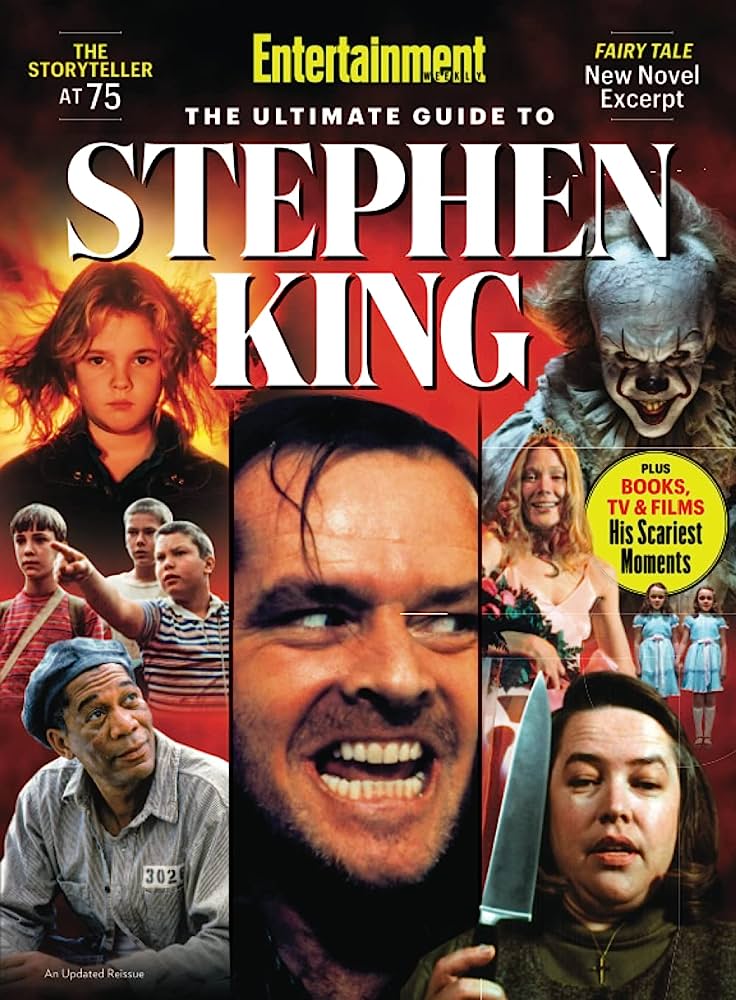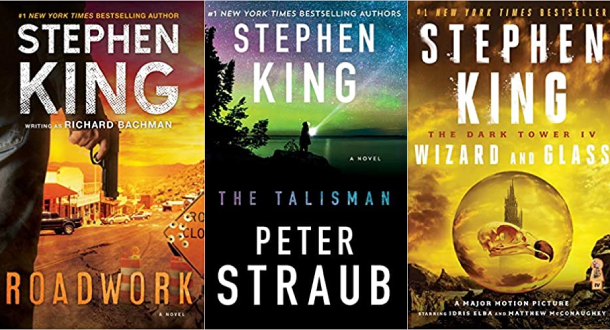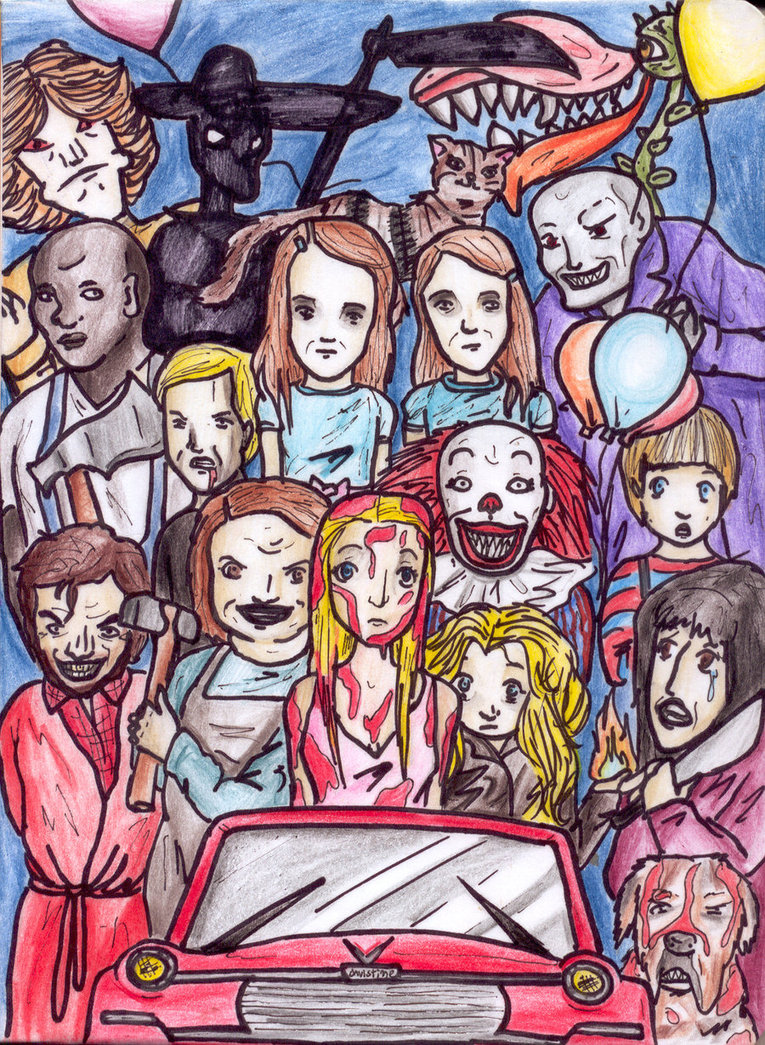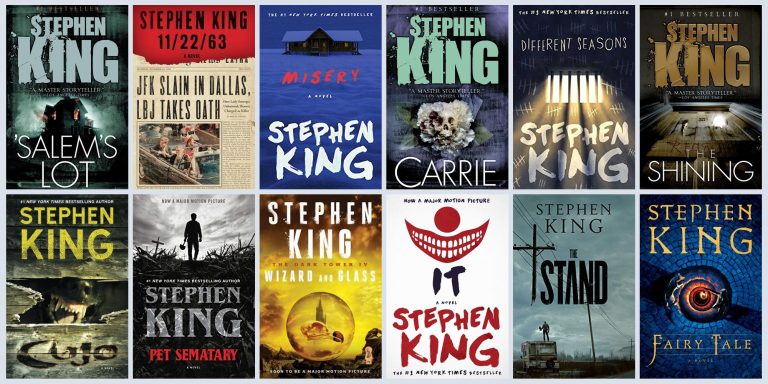Why Do I Find Horror Relaxing?
Do you ever find yourself drawn to horror movies or books, even though they might make you jump out of your seat or give you nightmares? It may seem counterintuitive, but many people find horror to be a surprisingly relaxing genre. Yes, you heard that right. Relaxing. So, why do some individuals find solace in the terrifying and spine-chilling world of horror? Let’s dive into the psychology behind why horror can be so soothing for some.
While horror may seem like the last thing you’d associate with relaxation, it taps into a unique aspect of our human nature. The adrenaline rush and the surge of fear experienced while watching a horror movie or reading a horror novel can actually release endorphins, our brain’s natural feel-good chemicals. It’s almost like a rollercoaster ride for our emotions, providing an exhilarating escape from the mundane. Plus, when we expose ourselves to the controlled fear of a horror story, we can feel a sense of accomplishment and triumph over our fears, which can be incredibly empowering. So, if you’re someone who finds relaxation in the eerie and macabre, you’re not alone. Horror can offer a thrilling and cathartic experience that allows us to confront our fears in a safe and controlled environment.
Many people find horror movies or stories relaxing because of the concept of catharsis. The intense emotions and fear experienced while watching horror can serve as a release or escape from the stresses of everyday life. It’s a way to safely experience fear and excitement in a controlled environment. Additionally, the adrenaline rush and increased heart rate can provide a sense of thrill and excitement. So, if you find horror relaxing, you’re not alone!

Why do I Find Horror Relaxing?
Horror movies have always been a popular genre, captivating audiences with their thrilling and suspenseful narratives. But why is it that some people find horror movies to be not just entertaining, but also oddly relaxing? The answer lies in the unique psychological effects that horror movies have on our minds. In this article, we will explore the reasons behind the relaxation that can be found in horror movies, delving into the science and psychology behind this intriguing phenomenon.
The Thrill of Fear
Horror movies evoke fear and suspense, which triggers a physiological response in our bodies. When we experience fear, our bodies release adrenaline, which can create a sense of exhilaration and excitement. This release of adrenaline can also lead to a temporary boost in mood and a feeling of euphoria. It’s similar to the rush of adrenaline we might feel during a thrilling roller coaster ride or when participating in extreme sports. The intense emotions elicited by horror movies can offer a cathartic release, allowing us to experience fear in a controlled environment and ultimately feel more relaxed afterward.
Another reason why horror movies can be relaxing is their ability to provide an escape from reality. In our day-to-day lives, we often face various stressors and anxieties. Watching a horror movie allows us to momentarily shift our focus away from our own problems and immerse ourselves in a different world. This escapism can be a form of mental relaxation, as we become absorbed in the suspenseful plot and temporarily forget about our own worries. It’s almost like taking a mini-vacation from reality, allowing our minds to unwind and recharge.
The Science Behind Relaxation
To understand why horror movies can induce relaxation, it’s essential to explore the science behind the relaxation response. When we experience fear, our bodies enter a state of heightened alertness known as the “fight or flight” response. This response involves the release of stress hormones such as cortisol and adrenaline, which prepare our bodies to either confront the threat or flee from it. However, once the threat has passed, our bodies activate the relaxation response to counteract the stress response.
The relaxation response triggers a cascade of physiological changes, including a decrease in heart rate, blood pressure, and muscle tension. It also promotes the release of endorphins, which are natural pain-relieving and mood-enhancing chemicals in the brain. These changes create a state of deep relaxation and calmness, similar to the feeling we might experience after practicing meditation or engaging in other relaxation techniques. In the context of horror movies, the initial fear and suspense activate the stress response, but once the movie ends, our bodies naturally transition into the relaxation response, leaving us feeling relaxed and at ease.
In addition to the physiological effects, horror movies can also have psychological benefits that contribute to their relaxation-inducing qualities. Watching a horror movie can provide a sense of control and empowerment. We know that the events unfolding on the screen are fictional and that we are in a safe environment. This knowledge allows us to confront our fears in a controlled manner and experience a sense of mastery over them. By facing our fears vicariously through the characters in the movie, we can gain a renewed sense of confidence and resilience in our own lives.
Overall, the relaxation that can be found in horror movies is a fascinating phenomenon that combines physiological and psychological factors. The thrill of fear, the escapism from reality, and the physiological responses triggered by horror movies all contribute to the unique relaxation-inducing effects. So the next time you find yourself curling up on the couch to watch a horror movie, remember that you’re not just seeking entertainment – you’re also giving yourself a well-deserved moment of relaxation.
Key Takeaways: Why do I find horror relaxing?
- 1. Horror movies or stories can provide a safe way to experience fear and adrenaline.
- 2. The suspense and anticipation in horror can keep the mind engaged and distracted from everyday worries.
- 3. The release of tension after a scary moment can create a sense of relief and relaxation.
- 4. Horror can also serve as a form of catharsis, allowing us to confront our own fears and anxieties.
- 5. The sense of control and mastery over fear in horror can provide a sense of empowerment and confidence.
Frequently Asked Questions
Question 1: Can horror movies or books really be relaxing?
While it may seem counterintuitive, many people find horror movies or books to be relaxing. The experience of watching or reading horror can provide a sense of catharsis and release, allowing us to confront and process our own fears in a controlled environment. It’s a way of safely experiencing intense emotions and adrenaline rushes without any real danger.
Additionally, horror often involves suspense and mystery, which can be intellectually stimulating. The challenge of trying to solve the mystery or predict what will happen next can be engaging and can help distract our minds from everyday stressors, offering a temporary escape.
Question 2: Are there any physiological reasons why horror can be relaxing?
Yes, there are physiological reasons why horror can be relaxing for some individuals. When we watch or read horror, our bodies release adrenaline, which triggers the “fight or flight” response. This rush of adrenaline can actually provide a sense of excitement and thrill, similar to what we might feel during a roller coaster ride or a thrilling sport.
Additionally, the release of adrenaline during horror experiences can also lead to a subsequent release of endorphins, which are natural painkillers and mood enhancers. This can create a sense of relaxation and even euphoria after the initial fright has passed.
Question 3: Is it normal to find relaxation in something that is meant to scare us?
It is absolutely normal to find relaxation in something that is meant to scare us. Everyone has their own unique preferences and ways of finding relaxation and enjoyment. For some, the thrill of being scared or the adrenaline rush that comes with it can be a source of entertainment and relaxation.
It’s important to remember that what relaxes one person may not relax another, and that’s perfectly okay. As long as engaging with horror content doesn’t cause distress or interfere with daily functioning, there’s no reason to think it’s abnormal or unhealthy.
Question 4: Can horror help us deal with real-life fears and anxieties?
Yes, horror can help us deal with real-life fears and anxieties. By exposing ourselves to fictional scenarios that evoke fear, we can learn to cope with and manage our own fears in a safe environment. Horror allows us to confront our fears in a controlled way, helping us build resilience and develop strategies for dealing with anxiety-provoking situations.
Furthermore, horror often explores universal themes like loss, betrayal, and the unknown, which can resonate with our own experiences and emotions. Through identification with the characters and their struggles, we may find solace and a sense of connection, ultimately helping us process and understand our own fears and anxieties.
Question 5: Are there any potential drawbacks to finding relaxation in horror?
While finding relaxation in horror is generally harmless, it’s important to be mindful of individual boundaries and sensitivities. For some individuals, exposure to graphic or violent content may be distressing or triggering, and it’s crucial to prioritize mental and emotional well-being.
Additionally, if the enjoyment of horror starts to interfere with daily life or becomes an obsessive preoccupation, it may be worth reassessing one’s relationship with the genre. As with any form of entertainment, moderation and self-awareness are key to ensuring a healthy and balanced approach.
What horror films teach us about ourselves and being human | Dr. Steven Schlozman | TEDxNashville
Final Thought: Why Horror Can Be Surprisingly Relaxing
After exploring the intriguing world of horror and its effects on our minds, it becomes clear that there is more to this genre than meets the eye. While it may seem counterintuitive to find relaxation in something that is meant to frighten and unsettle us, horror movies and stories have a unique way of providing a cathartic experience. The adrenaline rush and heightened emotions we experience while watching horror can actually help us release stress and tension, leading to a sense of relaxation afterward.
One reason horror can be relaxing is that it allows us to confront our fears in a controlled environment. By safely immersing ourselves in a scary story, we are able to experience fear without the real-life consequences. It’s almost like a rollercoaster ride for our emotions, where we know we’re safe but can still feel the thrill. This controlled exposure to fear can help desensitize us to real-life anxieties, making them feel more manageable in comparison.
Additionally, horror can provide a form of escapism from our everyday worries. When we immerse ourselves in a suspenseful or terrifying narrative, our focus shifts away from our own troubles and onto the fictional world unfolding before us. This temporary distraction allows us to take a break from our own stressors and immerse ourselves in an entirely different reality. It’s like a mental vacation, giving our minds a much-needed break and allowing us to recharge.
In conclusion, despite its reputation for being terrifying, horror can surprisingly offer a sense of relaxation and release. By providing a controlled environment to face our fears and offering an escape from our own worries, horror movies and stories have a unique way of captivating and relaxing us. So the next time you find yourself seeking a thrilling and chilling experience, don’t be surprised if you come out feeling surprisingly relaxed and rejuvenated.






